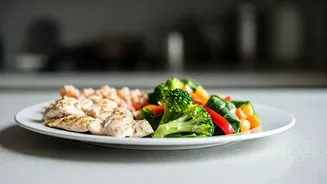Understanding Winter Lip
Winter's arrival often brings a host of skin concerns, and our lips are particularly vulnerable. The cold, dry air outside combined with heated indoor
environments creates a challenging environment. This combination leads to a loss of moisture, resulting in chapped, cracked, and sometimes painful lips. The lips lack oil glands, making them susceptible to dryness. Additionally, frequent exposure to wind and sun further exacerbates the problem. Therefore, a proactive approach to lip care during winter is essential to maintain healthy and comfortable lips. Proper hydration, both internally and externally, plays a vital role in preventing and treating dryness. Regular application of a quality lip balm acts as a protective barrier against the harsh elements, locking in moisture and promoting healing. Choosing the right lip balm is key.
Balm Selection Criteria
Choosing the right lip balm involves considering several key factors to ensure optimal effectiveness. Look for balms containing moisturizing ingredients like shea butter, cocoa butter, or various plant-based oils, such as coconut or jojoba oil, which help to hydrate and nourish the lips. Ingredients that form a protective barrier, like beeswax or petrolatum, are essential for locking in moisture and shielding against environmental aggressors. Ingredients such as ceramides can reinforce the skin barrier and prevent water loss. Moreover, the inclusion of ingredients like hyaluronic acid can attract and retain moisture. It is also good to consider balms with sun protection, as the sun can also dry out lips. Opting for balms free from irritants like artificial fragrances and harsh chemicals can minimize the risk of adverse reactions. Reading reviews and comparing different formulations can help determine which balms suit individual preferences and skin sensitivities. A well-chosen lip balm can become a daily essential, contributing significantly to lip health and comfort.
Effective Lip Balms
Finding the perfect lip balm often involves some experimentation. Firstly, balms that are rich in natural moisturizers like shea butter and cocoa butter are a fantastic starting point. Shea butter deeply hydrates, while cocoa butter adds a layer of protection. Secondly, consider balms that include ingredients like beeswax, which is known for sealing in moisture. Beeswax creates a barrier against the elements and prevents moisture loss. Thirdly, balms containing plant-based oils such as coconut, jojoba, or argan oil offer nourishing properties that soothe and hydrate. Coconut oil provides quick hydration, jojoba oil mimics the skin's natural oils, and argan oil provides antioxidants. Fourthly, those with sun protection factor (SPF) are essential for daytime use, guarding against UV damage, which causes dryness. Finally, for those with sensitive skin, it's wise to select fragrance-free and hypoallergenic options to avoid irritation. Experimenting with different formulations and ingredients helps discover what best suits individual needs, and will help keep lips comfortable.
Application and Habits
Correct application techniques and lifestyle habits greatly influence the effectiveness of lip balms. Applying lip balm generously and frequently throughout the day is key, especially after eating or drinking, when the balm may wear off. Carry a lip balm everywhere to ensure it is always handy for reapplication. Another crucial aspect is to apply the balm before venturing outdoors, before the harsh conditions take their toll, creating a protective barrier against the wind and cold. Moreover, a habit to break is lip licking, which is a common but detrimental behavior, as saliva quickly evaporates, leaving lips drier than before. Consider applying a thick layer of lip balm before bedtime to provide overnight hydration. Complementing lip balm use with proper hydration, by drinking plenty of water, supports lip health from the inside out. Incorporating these simple habits into a daily routine can keep lips healthy and comfortable throughout winter.
Long-Term Lip Care
Long-term lip care involves more than just applying lip balm; it is about adopting a comprehensive approach to maintain lip health. Exfoliation is crucial for removing dead skin cells and promoting healthy cell turnover. Use a gentle lip scrub a few times a week, or a soft toothbrush, to exfoliate gently. Following exfoliation, always apply lip balm to replenish moisture and soothe the lips. Another significant aspect is the use of high-quality, hydrating lipsticks. Avoid matte lipsticks, which can be drying, and choose formulas containing moisturizing ingredients. Protect lips from sun damage by selecting lip balms with SPF, especially during sunnier days. Lastly, maintaining a healthy lifestyle, including adequate hydration and a balanced diet, contributes to overall skin health, which includes lips. By integrating these strategies, you’re not just treating dryness, but investing in the long-term health and vitality of your lips.
Addressing Severe Dryness
When dealing with severe lip dryness, a more intensive approach may be required to get relief. When lips are severely chapped or cracked, it’s best to avoid potential irritants like flavored lip balms or products containing menthol or camphor. For extreme cases, consider using a lip balm that is specifically formulated for intense hydration and repair, that often contains humectants (like hyaluronic acid) that draw moisture into the lips. Before applying lip balm, gently clean the lips to remove any debris or product buildup. Apply a thick layer of a deeply hydrating lip balm, particularly before bed, to allow the product to work overnight. To assist in the healing process, think about using a humidifier at night, which can help increase the moisture in the air and reduce dryness. If the condition worsens or persists, it's advisable to consult a dermatologist, as they can diagnose underlying conditions or recommend prescription treatments. This proactive approach will help bring fast relief.

















